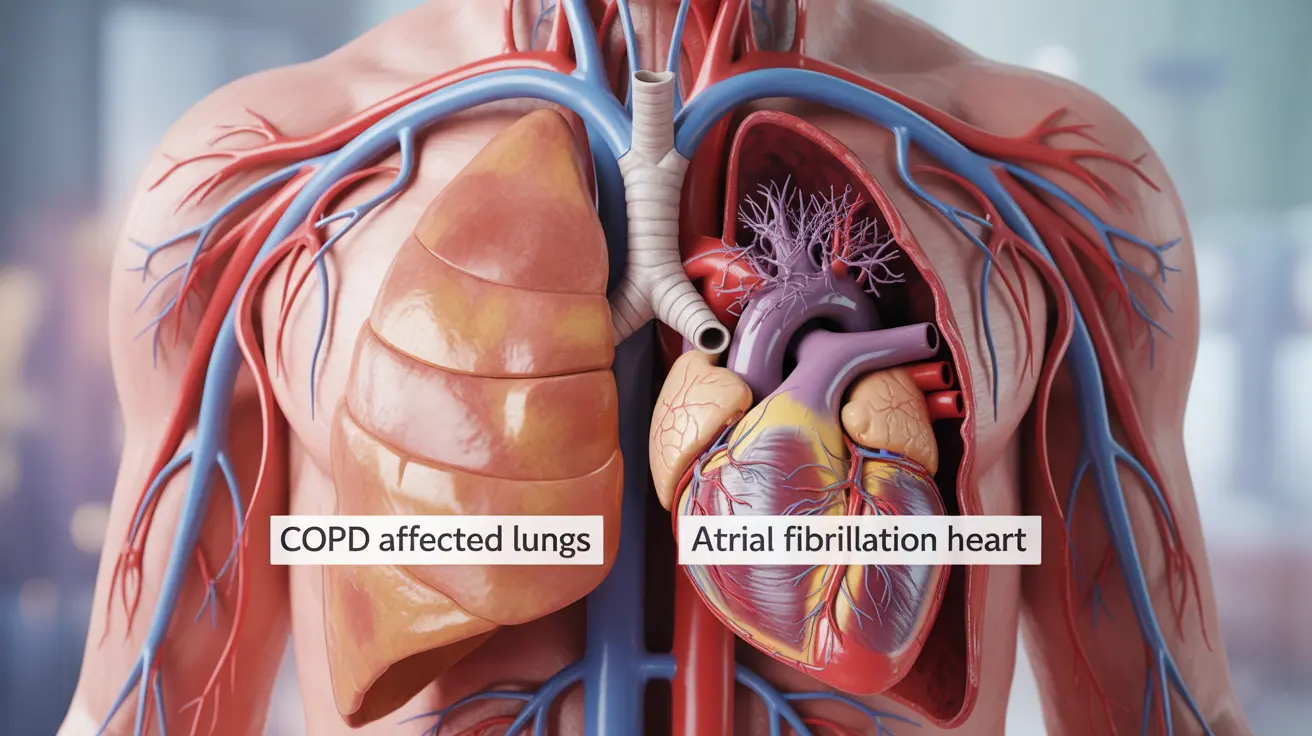Living with both Chronic Obstructive Pulmonary Disease (COPD) and Atrial Fibrillation (AFib) presents unique challenges that can impact life expectancy and quality of life. Understanding how these conditions interact and what steps can be taken to manage them effectively is crucial for patients and their caregivers.
This comprehensive guide explores the relationship between COPD and AFib, their combined effect on life expectancy, and important strategies for managing both conditions to optimize health outcomes.
The Impact of Combined COPD and AFib on Life Expectancy
When COPD and AFib occur together, they can create a more complex health situation than either condition alone. The combination typically results in a more significant reduction in life expectancy compared to having just one condition, primarily due to the way these conditions interact and affect vital organ systems.
Research indicates that patients with both conditions may experience more frequent hospitalizations and face an increased risk of complications, which can influence their overall survival rates.
Key Factors Affecting Prognosis
Disease Severity
The severity of both conditions plays a crucial role in determining life expectancy. COPD stages, particularly advanced stages like GOLD stage 4, can significantly impact survival rates when combined with AFib.
Age and Overall Health
Additional factors that influence prognosis include:
- Age at diagnosis
- Presence of other health conditions
- Overall cardiovascular health
- Lung function measurements
- Physical activity levels
- Smoking status
Common Complications and Risks
People living with both COPD and AFib face several potential complications:
- Increased risk of stroke
- Higher likelihood of heart failure
- More frequent exacerbations of COPD
- Greater risk of respiratory failure
- Enhanced likelihood of cardiovascular events
- More challenging medication management
Managing Both Conditions Effectively
Medical Treatments
Proper medical management typically involves:
- Careful coordination of medications for both conditions
- Regular monitoring of heart rhythm and lung function
- Anticoagulation therapy when appropriate
- Bronchodilators and other COPD medications
- Heart rate control medications
Lifestyle Modifications
Several lifestyle changes can help improve outcomes:
- Smoking cessation
- Regular physical activity within tolerance
- Maintaining a healthy weight
- Following a heart-healthy diet
- Stress management
- Avoiding triggers that worsen either condition
Frequently Asked Questions
How much does having both COPD and AFib reduce life expectancy compared to having just one of these conditions?
Having both COPD and AFib typically results in a more significant reduction in life expectancy compared to having either condition alone. The exact impact varies based on factors such as disease severity, age, and overall health status, but studies suggest the combination can reduce life expectancy by several years compared to having just one condition.
What factors influence how long someone with COPD and AFib is likely to live, and what can be done to improve prognosis?
Key factors affecting life expectancy include disease severity, age at diagnosis, smoking status, adherence to treatment plans, and presence of other health conditions. Prognosis can be improved through proper medication management, regular medical monitoring, lifestyle modifications, and addressing modifiable risk factors.
What are the most common complications or risks for people living with both COPD and AFib?
Common complications include increased risk of stroke, heart failure, respiratory failure, more frequent hospitalizations, and challenges in medication management. These risks can be managed through proper medical care and lifestyle modifications.
How does the severity of COPD (such as GOLD stage 4) affect life expectancy in patients who also have AFib?
GOLD stage 4 COPD, when combined with AFib, typically results in a more significant reduction in life expectancy. Advanced COPD stages can complicate the management of AFib and increase the risk of serious complications.
Are there specific treatments or lifestyle changes that can help manage both COPD and AFib and potentially extend life expectancy?
Yes, specific treatments include coordinated medication management, regular medical monitoring, smoking cessation, physical activity within tolerance, maintaining a healthy weight, and following a heart-healthy diet. These interventions, when combined with proper medical care, can help optimize outcomes and potentially extend life expectancy.




